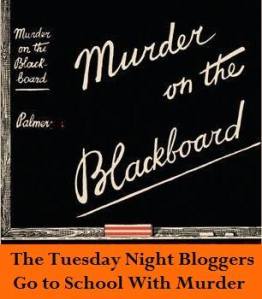 A few weeks ago I gleaned advice on going on holiday, working in a theatre and visiting a country house from different crime fiction novels, so to kick start the Tuesday Night Blogger’s month long look at academic mysteries I have scoured various mystery novels to see what advice they give on going to and working in schools, colleges and university. These are not just places where you can meet new people, decides on your future and expand your mind. These places according to crime fiction are also fraught with danger ranging from assault, to blackmail and even murder!
A few weeks ago I gleaned advice on going on holiday, working in a theatre and visiting a country house from different crime fiction novels, so to kick start the Tuesday Night Blogger’s month long look at academic mysteries I have scoured various mystery novels to see what advice they give on going to and working in schools, colleges and university. These are not just places where you can meet new people, decides on your future and expand your mind. These places according to crime fiction are also fraught with danger ranging from assault, to blackmail and even murder!
Tip No. 1: Don’t inform your work colleagues when you come into money.
It’s natural when you have some good news that you want to tell those close to you and if it’s a financial boon they may well want some advice. But be careful who you tell. Telling your work colleagues may give you kudos but it can also lead to envy and avarice and in some cases this can lead to people taking drastic action to get what you have. A good example of can be found in Francis Beeding’s The Norwich Victims (1931).
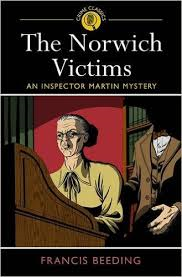
Tip No. 2: Don’t agree to meet people in or go wandering around secluded places on campus, especially at night.
As with country houses isolated locations in and around places of learning are never good to frequent by yourself, which is again borne out in The Norwich Victims and also in Christie’s Cat Among the Pigeons (1959), where a sports pavilion becomes a perilous place at night.

Tip No. 3: Don’t take part in gymnastics.
This piece of advice may be upsetting for all your budding gymnasts but it’s for your own good. You might enjoy swinging on ropes, climbing wall bars and leaping over pommel vaults, but they are also potential sites for murder, murder which is meant to look accidental. No one knows this better than Rouse in Josephine Tey’s Miss Pym Disposes (1946).

Tip No. 4: Make sure your sports equipment hasn’t been tampered with
This may seem an odd one, especially if you don’t own any sports equipment, but just in case you suddenly decide to take up squash or something, always keep your equipment stowed away securely when not using it and check it is not being used for alternative or nefarious purposes. For example a racket or a cricket bat could easily become a murder weapon or in Christie’s Cat among the Pigeons, a tennis racquet ends up imperilling its owner’s life and is an instrumental part of the mystery’s plot.
Tip No. 5: If you go to university or college and you’re unfortunate enough to be involved in a murder, take note of which amateur sleuth takes on the investigating.
Making sure your amateur sleuth is up to the job is an important thing, as your own safety and future could depend on the consequences of their investigation. Usually in detective fiction, especially Golden Age detective fiction, characters have little to worry about in such circumstances unless they are the killer, as invariably despite the odd behaviour of the amateur sleuths they always get their man or woman. However, this is not always the case. If you have Hercule Poirot then you can rest easy but if you have Lucy Pym from Miss Pym Disposes, I’d definitely get a second opinion on the case, as Pym’s approach to detective work tends to towards the destructive side, with justice being perverted. Equally if you have an older Nigel Strangeways (created by Nicholas Blake) investigating your campus murder I’d stay clear of him if you are a woman, as in The Morning After Death (1966) he is not above cheating on his long term partner, Claire.
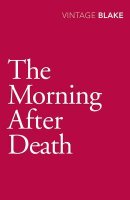
Tip No. 6: Beware of water sports…
Another sport which can be bad for your health is punting or rowing, as again it leaves you vulnerable to being bumped off, with boats taking on a variety of roles in detective novel murders. Mavis Doriel Hay’s Death on the Cherwell (1935) is one example.
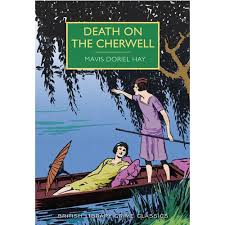
Note: …unless of course you are punting with Lord Peter Wimsey (see Sayer’s Gaudy Night (1935)). In which case you will be fine.

Tip No. 7: Be aware of the possible jealousies and antagonisms which can occur in enclosed groups of people…
Like a theatre or ballet troupe or a country house party, academic bodies can be rife with malicious gossip, personal vendettas and grudges and in some cases this can lead to blackmail or even murder. Michael Innes’ Death at the President’s Lodgings (1937) and Batya Gur’s Literary Murder (1993) are two examples of this problem.
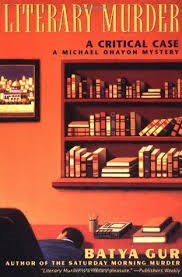
Note: …but don’t assume your work colleague’s gripes are always the source of your problems. Gaudy Night is a prime example of personal differences mudding the investigative waters.
Tip No. 8: Be prepared for pranks
This rule applies to all age groups as university and training college students are not above pranking their fellow learners. Some of these might be fairly innocent but there can also be much more harmful and serious ones such as hair cutting in Gladys Mitchell’s Laurels are poison (1942). So always keep your possession out of reach, never pass out due to alcohol consumption and in some cases sleep with one eye open.
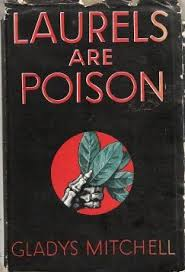
Tip No. 9: Don’t start relationships with other people’s partners or with your students
Moral and ethical issues aside, a primary reason many a murder mystery character wished they had followed this rule is that having inappropriate relationships invariably makes you look very suspicious in murder cases, often providing you with a motive for killing someone. Nicholas Blake’s A Question of Proof (1935) and Simon Nash’s Dead of a Counterplot (1985) are both examples of this problem.
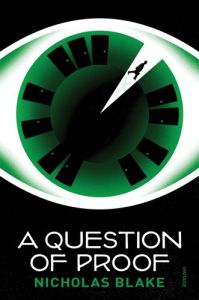
Tip No. 10: Don’t accept invitations to take on school speeches
It may be flattering to be asked to give a speech at a school, but think before you accept, as you may be taking on more than you expect. Both Death in Devon (2015) by Ian Sansom and Edmund Crispin’s Love Lies Bleeding (1948) reveal that taking on a school day speech often leads to some amateur sleuthing as in each novel our prospective speech makers have to unravel mysterious disappearances and/or uncover killers. Of course that might sound quite fun to you, but sleuthing can be a dangerous occupation.
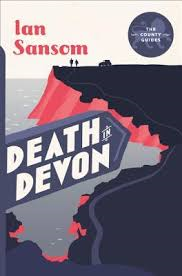
Tip No. 11: Don’t get involved in school trips
In theory it seems a good idea to take a break from the classroom and give your learners a chance to do or see something new, but there are also many potential downsides. From pupils getting travel sick, (all over your brand new coat), to students going missing or misbehaving, as well as the more grisly experience of finding a corpse, class trips are not all they are cracked up to be. One fictional example which comes to mind is Stuart Palmer’s The Penguin Pool Murder (1932) where Hildegarde Withers and her cohort of pupils come across a dead body in the (you’ve guessed it) the penguin pool at the zoo.
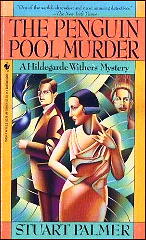
Tip No. 12: Be careful who you decide to be friends with when going to university
When you go to university the desire to fit in and make lots of friends is strong. But it is important to make sure you pick the right sort of people to hang out with. People who are kind, have your best interests at heart and are reliable make good friend material. They help you out when things go wrong and they make living away from home easier. But if you make friends with the wrong sort of people many bad consequences can follow. Taking drugs, getting into trouble with the police and behind on your deadlines are the more common examples. But in Dead of a Counterplot there is also the potential for being pressured and manipulated into joining up and supporting a political group.
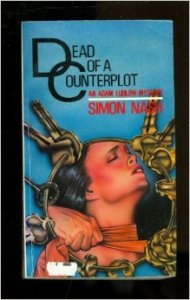
Over to you
Know of any other tips detective fiction advocates when going to school, college or university? Let us know in the comments section below.
A great list, Kate! I’m all about Hildegarde Withers this week! I would have definitely had a crush on her if she had taught ME third grade! And I’m planning on exploring Gervase Fen and Miss Pym later this month, so thanks for the heads up!
LikeLiked by 1 person
I look forward to reading your views on Fen and Pym (especially the latter who is a bit of a bugbear for me!). I’m surprise that you’re not doing a piece on Christie’s Cat Among the Pigeons though.
LikeLike
Great list. Enjoyed it.
LikeLiked by 1 person
Got one for you. Avoid the theater clubs and those egotistical and very dangerous actor types: Death at the Opera by Gladys Mitchell; Juliet Dies Twice by Lange Lewis; Othello’s Occupation by L.A.G. Strong (aka Murder Plays an Ugly Scene); and many others.
Such a clever way to treat these widespread topics. Another fun post. Thanks for some new and intriguing titles, too! Have yet to read Nash. I have one book by him, but not the one above. still haven’t read Miss Pym Disposes though I almost did last year.
LikeLiked by 1 person
Oh yes that is a good one. Theatre clubs and amateur dramatic societies etc. are always dangerous things to get involved in, on and off campus! The Nash book is good as far as I can remember, but I’m not sure whether Miss Pym Disposes will be your cup of tea, though it might just be me who finds Miss Pym one of the world’s most infuriating amateur sleuths!
LikeLike
Gosh, these people are pretty much doomed! Don’t get educated, kids, too risky!!
LikeLiked by 1 person
Yes it does make home schooling a more attractive option.
LikeLiked by 1 person
I dunno, I’ve met a lot of home-schooled kids; makes me think it’s worth running the risk of poison/stabbing/hanging/etc.
LikeLiked by 1 person
Great list! I recently read ‘Dear Miss Demeanour’ by Joan Hess, and would suggest paying attention to anonymous letters. The only thing I remember from ‘Cat among Pigeons’ was that it pays to observe women’s knees… 😛
LikeLiked by 1 person
I haven’t heard of Joan Hess before, when was she writing? And I feel like looking at women’s knees does have the potential to get you into trouble?
LikeLike
I suppose Poirot gets away with alot of things… Joan Hess is a contemporary writer, and Puzzle Doctor has reviewed a couple of her early books. I quite like the sarcastic humour, but haven’t quite decided about the puzzle. By the least, It was definitely strong in ‘Murder at the Murder at Mimosa Inn’. No, there isn’t a typo – the novel focuses on a murder happening at a murder mystery party… 😛
LikeLike
haha that is a really hard title to say!
LikeLike
Don’t leave your chess set out – Gaudy Night again. Students are more or less disposable – most GA academic mysteries by men, where the death of students is almost below the radar. Great list, I am so glad my studying days are over so I am out of danger!
LikeLike
Yes long distance study may be the best way forward, considering all of the perils on campus. What happens to Harriet’s chess set? I know she gets a nice set off Peter, but I can’t remember what happens to I.
LikeLike
It is destroyed by a villain with a poker…
LikeLike